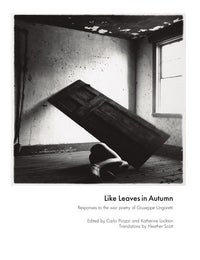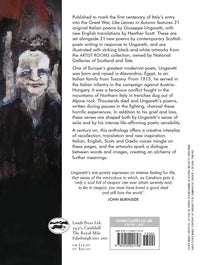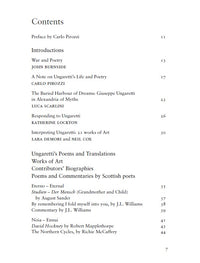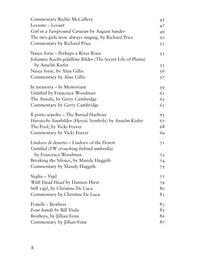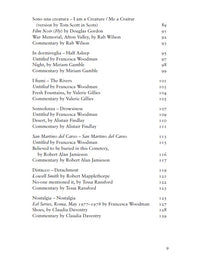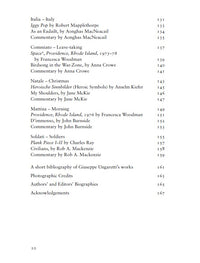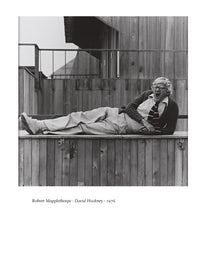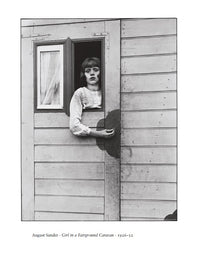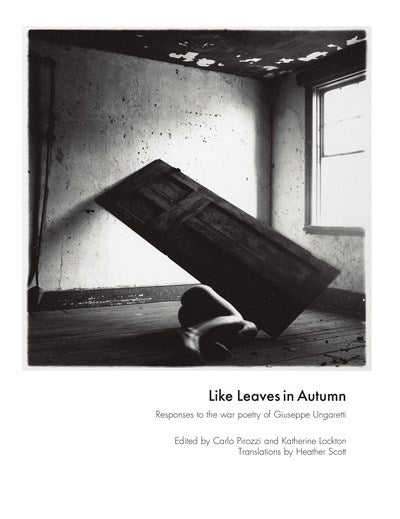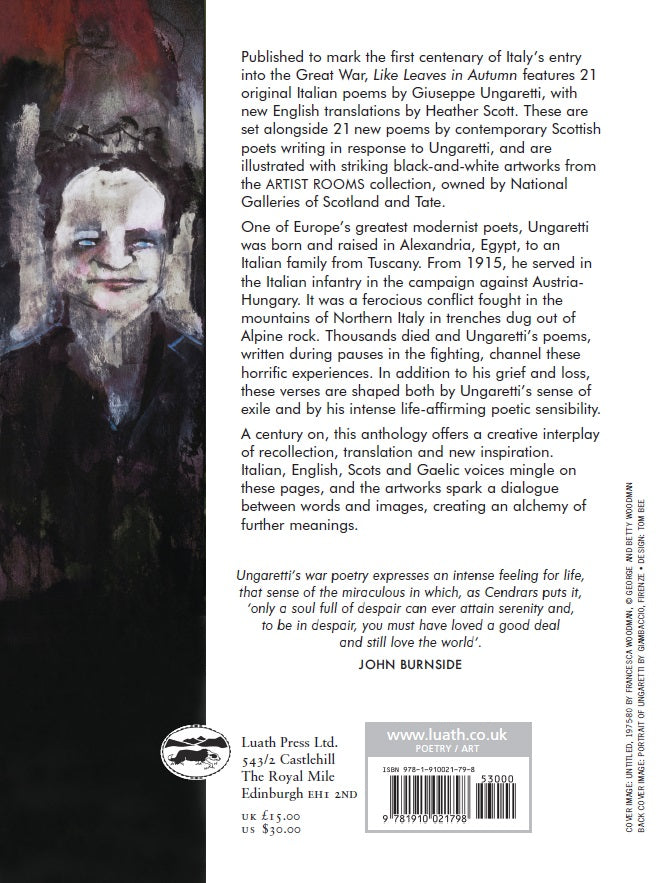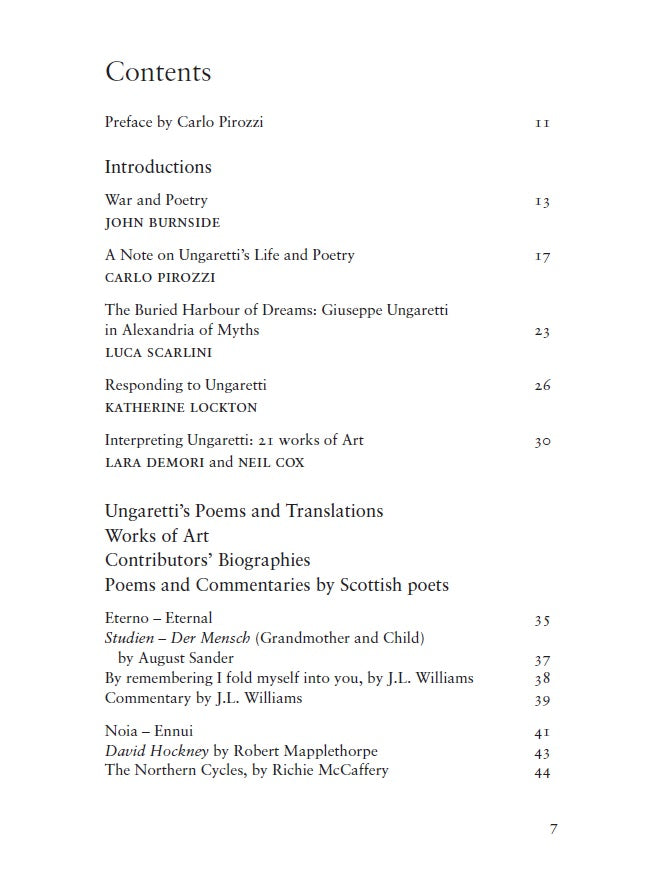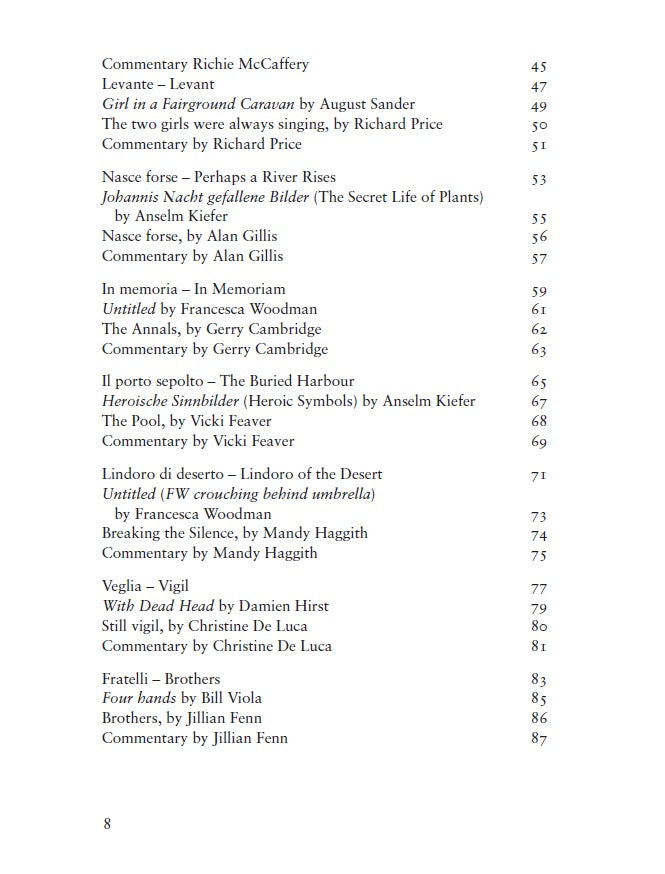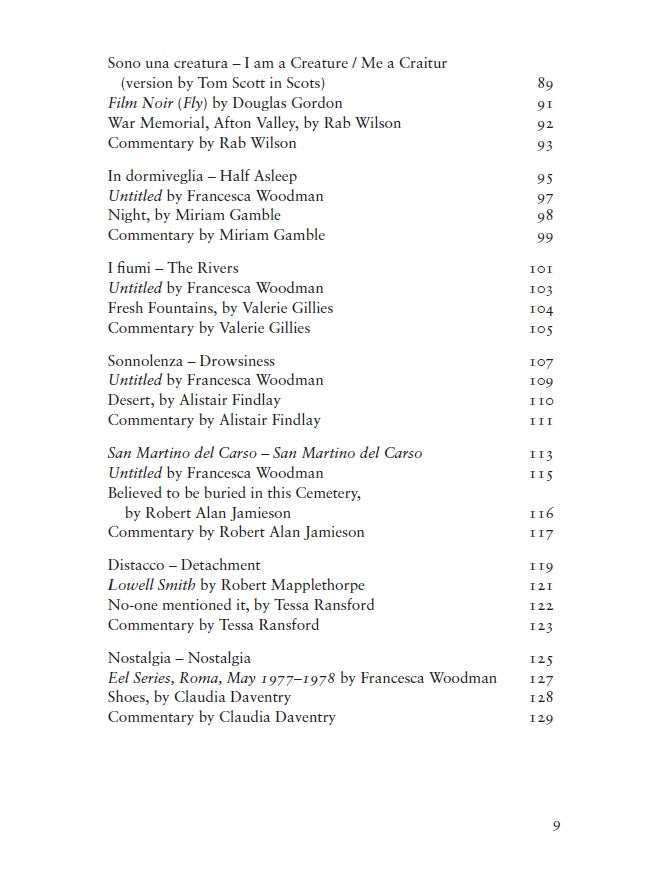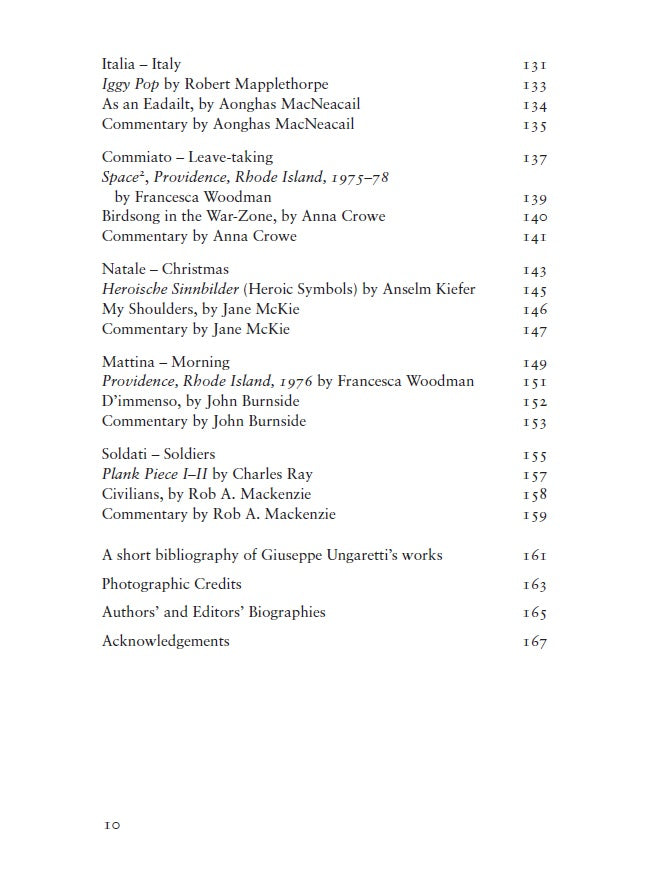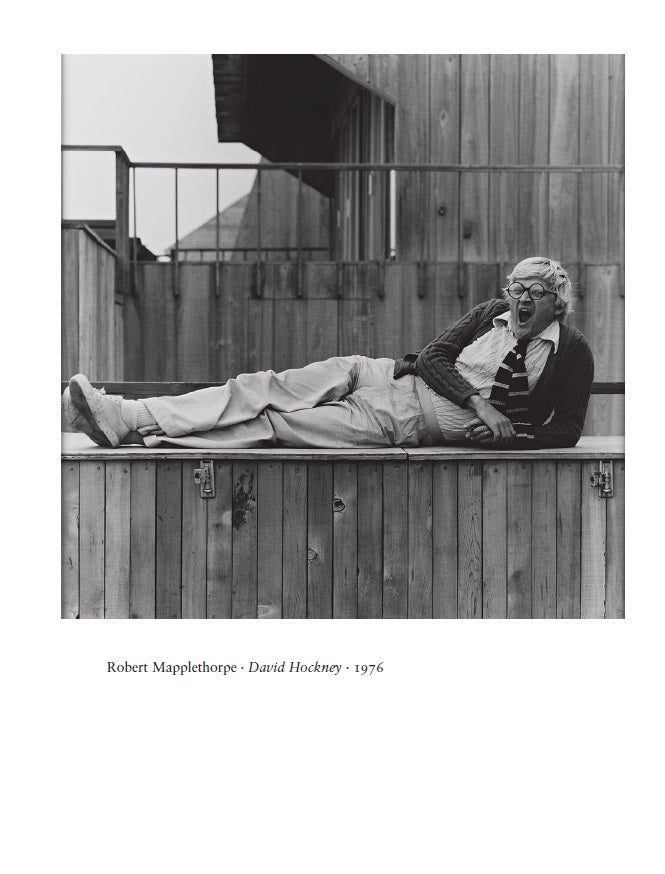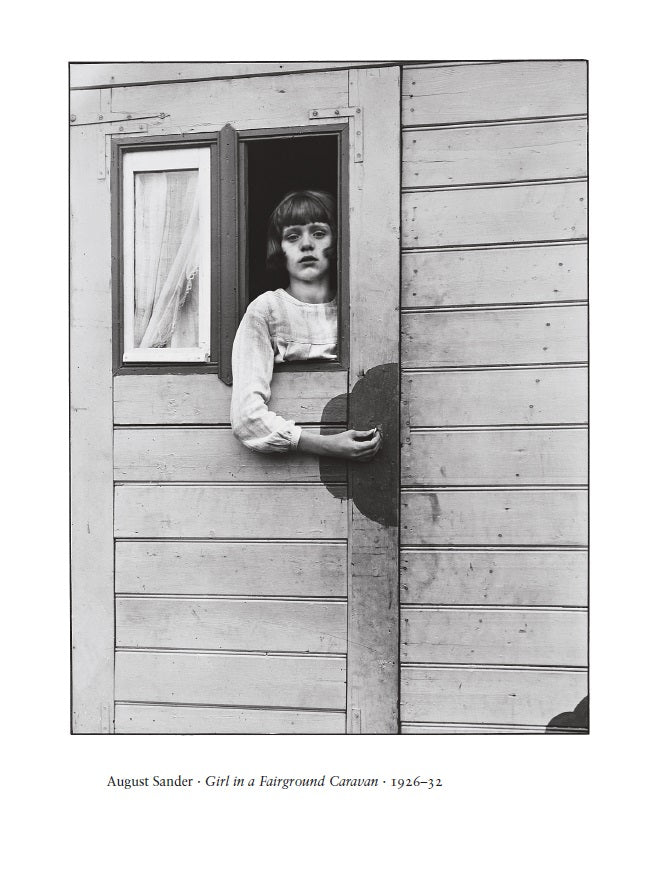Like Leaves in Autumn
Responses to the war poetry of Giuseppe Ungaretti
- Regular
- £15.00
- Sale
- £15.00
- Regular
- £15.00
- Unit Price
- per
About the Book:
Published to mark the first centenary of Italy’s entry into the Great War, Like Leaves in Autumn features 21 original Italian poems by Giuseppe Ungaretti, with new English translations by Heather Scott. These are set alongside 21 new poems by contemporary Scottish poets writing in response to Ungaretti, and are illustrated with striking black-and-white artworks from the ARTIST ROOMS collection, owned by National Galleries of Scotland and Tate.
One of Europe’s greatest modernist poets, Ungaretti was born and raised in Alexandria, Egypt, to an Italian family from Tuscany. From 1915, he served in the Italian infantry in the campaign against Austria-Hungary. It was a ferocious conflict fought in the mountains of Northern Italy in trenches dug out of Alpine rock. Thousands died and Ungaretti’s poems, written during pauses in the fighting, channel these horrific experiences. In addition to his grief and loss, these verses are shaped both by Ungaretti’s sense of exile and by his intense life-affirming poetic sensibility.
A century on, this anthology offers a creative interplay of recollection, translation and new inspiration. Italian, English, Scots and Gaelic voices mingle on these pages, and the artworks spark a dialogue between words and images, creating an alchemy of further meanings.
Reviews:
Ungaretti’s war poetry expresses an intense feeling for life, that sense of the miraculous in which, as Cendrars puts it, ‘only a soul full of despair can ever attain serenity and, to be in despair, you must have loved a good deal and still love the world. JOHN BURNSIDE
Each of the poets was asked to respond to a poem by Ungaretti with one of their own, and to provide a commentary on the new work. Richard Price confesses to being "uneasy" about responding to Ungaretti's Levante, but comes up with a neat solution, creating a poem that celebrates the innovative structure of the original but is simultaneously in defiance of everything Ungaretti would come to stand for. ROGER COX, Scotland on Sunday
About the Author:
GUISEPPE UNGARETTI (1888–1970) is one of Europe’s greatest modernist poets. He was also a writer, literary critic, journalist and university professor in Italy and in Brazil. He was born and raised in Alexandria, Egypt, to an Italian family from Tuscany. At the age of 24, he moved to Paris, where he associated with prominent artists of the European avant garde. Ungaretti fought on the Italian front from 1915 to 1917, taking part in some of the bloodiest episodes of the Great War, during which time much of his greatest poetry was written. Ungaretti later worked as a correspondent for Il Popolo d’Italia, a political daily paper founded by Benito Mussolini. In 1936, he moved to Brazil, where he took up a teaching post at São Paulo University. He continued to teach, travel and write throughout his life. The 21 poems by Ungaretti in the present anthology were selected from the collection, L’Allegria (The Joy, 1931). The original title of the book was Allegria di naufragi (The Joy of Shipwrecks), first published in 1919. This collection in turn included, in one of its sections, a tiny group of lyrical poems entitled Il Porto Sepolto (The Buried Harbour) written in the trenches during the First World War on ‘scraps of paper salvaged from the packaging of bullets’. The latter had been published separately in 1916 in only 80 copies. The 1919 volume underwent many corrections and additions before the 1931 publication, which itself also underwent a series of small changes, until in 1942 a final text appeared. The Joy, like Ungaretti’s entire critical essays, prose and translations, is collected in several volumes published by Mondadori, entitled Vita d’un uomo (The Life of a Man).
KATHERINE LOCKTON is a poet. Her work has been published in publications such as Magma, Rising, Morning Star, Northwords Now, The Dark Horse, Ink, Sweat & Tears, and in The Emma Press Anthology of Motherhood. Her poem ‘Reading my Skin’ is due out in Bloodaxe’s Raving Beauties: Hallelujah for 50ft Women in April 2015. In 2013 Katherine was awarded the Inaugural Travel Bursary by The Saltire Society and British Council Scotland. In 2014 she was shortlisted for Girton College’s Jane Martin Poetry Prize and won first place in the Outstanding in the Field Poetry Competition judged by Martin Figura.
CARLO PIROZZI is a Research Fellow at the Italian Department of St Andrews University, working on the ahrc-funded project, ‘Transnationalising Modern Languages: Mobility, Identity and Translation in Modern Italian Cultures’ (2014–16). His current research focuses on cultural translation and the visual history of the Italian community in Scotland. Pirozzi’s other main research interest is in 20th-century Italian literature, with his doctorate on the poetry of Giuseppe Ungaretti. He published a monograph on one of the most influential poets of the Florentine Hermetic literary movement (Incontrando B. lungo il nastro di Möebius. Dialoghi con Piero Bigongiari, Rome: Bulzoni, 2007). In recent years, he has co-edited two books, the first focusing on the Italian language and its implications in a transnational context, within the emigrant Italian community (Lingua e identità a 150 anni dall’Unità d’Italia. Edited by Matteo Brera and Carlo Pirozzi, Florence: Cesati, 2012), and the second an unpublished photographic diary of the journey of an Italo-Scots traveling to Cassino, in Italy, after the Second World War (No-Where-Next | War-Diaspora-Origin. Dominic Scappaticcio. A Journey (1946–1947). Edited by Federica G. Pedriali and Carlo Pirozzi. Photographic catalogue edited by Nicola Milazzo. Catalogue of the Montecassino Exhibition, Edinburgh Gadda Prize, 4–6 May 2013, Ravenna: Longo, 2013). In addition to this, he is involved in initiating and developing creative interdisciplinary projects involving universities, public and private cultural institutions as well as collaborations between artists from Scotland and Italy. In 2014, he won a Special Jury Prize in the Edinburgh International Film Festival’s Short Film Challenge for the film Coral Red, which he wrote and codirected.

